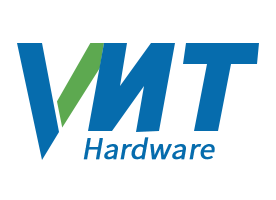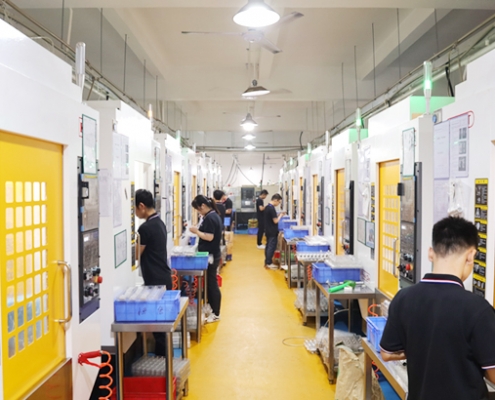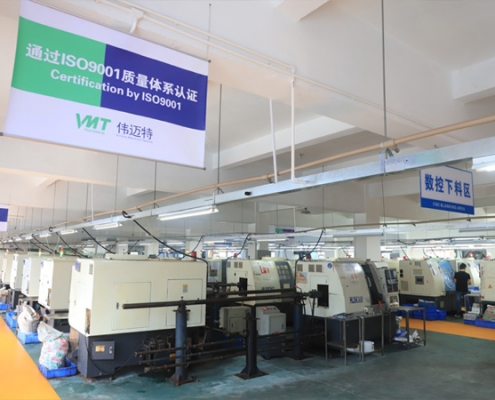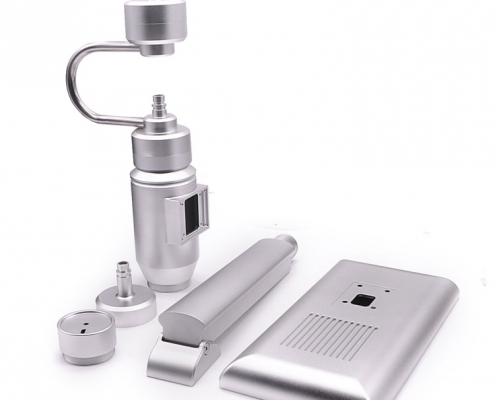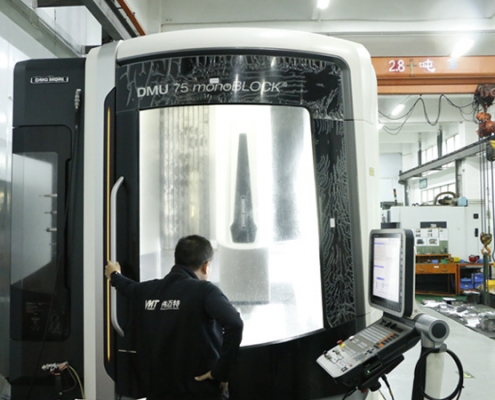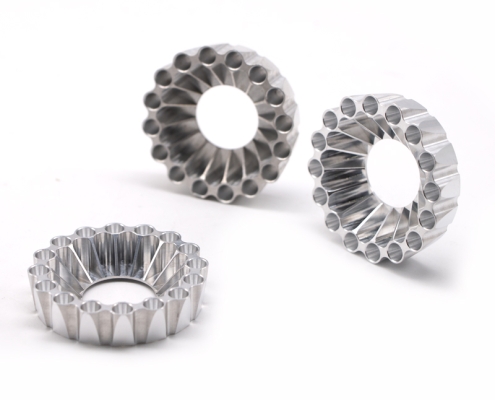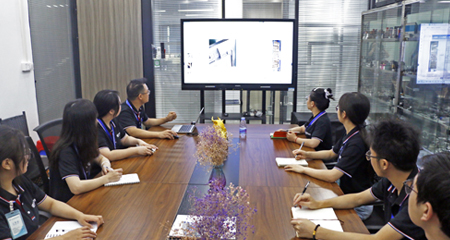Custom CNC Machining Services: A Comprehensive Guide
Are your manufacturing needs limited by standard machining solutions? Custom CNC machining services offer tailored precision to meet your unique demands. This guide dives deep into how these services can transform your production processes.
Custom CNC machining services deliver bespoke manufacturing solutions, offering unparalleled precision, material flexibility, and design adaptability for industries like automotive, aerospace, and medical equipment.
Explore the details of custom CNC machining services, their benefits, applications, and how to leverage them for your next project.
What Is Custom CNC Machining?
CNC machining custom refers to manufacturing processes designed to meet specific requirements, providing unique dimensions, tolerances, and finishes. Unlike standard machining, this process is tailored to meet the individual requirements of various industries. This process produces precision CNC machined parts tailored for a range of applications, effectively addressing challenges that arise when standard machining options are insufficient.
This process combines custom metal machining techniques with advanced technology to deliver high-quality results. A CNC machining company offering custom CNC machining services can handle complex designs and diverse material needs, including metals like aluminum, steel, and titanium.
Custom CNC metal cutting allows for intricate shapes and tight tolerances, making it essential for industries such as medical equipment and electronics. For example, a CNC machining service can produce patient-specific medical implants or precisely designed electronic enclosures, ensuring both functionality and reliability.
By leveraging cutting-edge machinery and experienced engineers, custom CNC service delivers precision and adaptability, providing tailored solutions that standard machining processes cannot achieve.
What is Meant by CNC Machining?
CNC machining refers to a computer-controlled process utilized for manufacturing precise components from a variety of materials. This method involves programming tools to adhere to defined pathways, allowing for the creation of intricate designs and ensuring consistent quality throughout the production process. Whether you’re looking for express machining for fast turnaround times or custom CNC machining services for tailored solutions, this technology offers exceptional flexibility.
This technology powers industries by enabling the production of parts with exceptional accuracy and repeatability. From aerospace brackets to medical devices, custom CNC machines play a crucial role in creating specialized parts that meet unique specifications. CNC machining ensures precision and scalability in manufacturing, offering solutions for both high-volume production and rapid prototyping.
Reasons for Custom Machining
Custom machining plays a vital role in tackling unique challenges that standard parts and processes are unable to resolve. In sectors like automotive and aerospace, custom machining helps achieve tighter tolerances and advanced designs, enabling innovative solutions. The ability to quickly adapt to specific requirements makes custom machining an indispensable part of modern manufacturing.
This process is widely utilized across industries to produce custom machined parts, ensuring scalability for applications like aerospace, medical, and industrial equipment. CNC machining services offer solutions for crafting components with tight tolerances and complex geometries that traditional machining methods cannot achieve. Whether for prototypes or large-scale production, custom CNC machining combines precision, speed, and flexibility, ensuring high-quality results tailored to various industries.
With advancements in technology, online CNC machining platforms now provide streamlined access to CNC services, allowing customers to request a CNC machining quote or design custom CNC parts through an online machine shop. These platforms, known as the best online CNC services, connect users with expert CNC shops to meet their specific manufacturing needs.
On our platform, you only need to upload a CAD file or send an email to enjoy free quotation service. We have a 24-hour online customer quotation engineer team and promise to provide you with accurate quotation within 2 hours.
Types of Custom Machining
Custom machining encompasses various methods, including CNC turning, milling, laser cutting, and multi-axis machining. Each technique offers distinct advantages, catering to different design and production requirements. For instance:
1. CNC Turning
CNC turning is a process where a workpiece is rotated while cutting tools shape it into the desired form. This technique is ideal for creating cylindrical parts such as shafts, rings, and bushings. It offers excellent precision, high-speed production, and is highly effective for symmetrical designs.
2. CNC Milling
CNC milling uses rotary cutting tools to remove material from a fixed workpiece, enabling the creation of complex shapes and surfaces. This method is perfect for flat, angled, or contoured parts and ensures high accuracy and repeatability, making it a go-to choice for versatile machining needs.
3. Laser Cutting
Laser cutting utilizes high-powered lasers to precisely cut or engrave materials. It is particularly suitable for thin materials and applications requiring fine details. This method minimizes material waste and ensures smooth, clean edges, making it an excellent option for intricate designs.
4. 5-Axis Machining
5-axis machining allows simultaneous movement along five axes. It excels at producing complex geometries and intricate designs with high precision. This technique is often used in industries like aerospace and medicine, where detailed and high-quality components are essential.
5. Multi-Axis Machining
Multi-axis machining refers to methods that involve more than three axes of movement, such as 4-axis and 5-axis systems. This approach is well-suited for creating sophisticated parts in a single setup, reducing production time and enhancing efficiency, especially for intricate projects.
Custom Machining vs. the Alternatives
Custom machining outperforms traditional methods by offering enhanced flexibility, precision, and adaptability to swiftly evolving demands. Although conventional machining is well-suited for mass production, custom machining is superior for small-batch, complex projects that necessitate specific design requirements.
Compared to other technologies like 3D printing or mold-making, custom machining offers superior material choices, tighter tolerances, and better surface finishes. This makes it the preferred option for industries needing high-quality, reliable components.
What Are the Advantages of Custom CNC Machining?
Custom CNC machining offers several advantages that make it a preferred choice for precision manufacturing.
1. High Precision and Accuracy
CNC machines operate with exceptional accuracy, achieving tolerances as low as ±0.01 mm. This ensures the production of intricate and precise components suitable for industries like aerospace, medical, and electronics.
2. Versatility in Material Use
CNC machining supports a wide range of materials, including metals (aluminum, steel, titanium), plastics, and composites. This versatility enables manufacturers to meet diverse project requirements.
3. Efficient Production
With the ability to automate processes, CNC machining delivers consistent results at high speeds. It is ideal for both prototyping and large-scale production, reducing lead times and enhancing productivity.
4. Customizability
CNC machining can produce unique and complex designs tailored to specific applications. Whether it’s a single prototype or a batch of custom parts, CNC technology ensures flexibility in meeting diverse needs.
5. Reduced Errors and Waste
The computer-controlled process minimizes human error and optimizes material usage, resulting in reduced waste and cost savings. This contributes to sustainable manufacturing practices.
Key Features of Custom CNC Machining Services
Custom CNC machining services offer significant design flexibility, material versatility, and stringent quality control measures. These attributes enable manufacturers to adhere to precise specifications while enhancing the efficiency of their production processes.
For instance, VMT utilizes advanced equipment and a team of experienced engineers to produce CNC machined parts with a tolerance of 0.01 mm. The integration of cutting-edge technology alongside thorough quality assurance practices guarantees exceptional results for clients.
Best Practices for Custom CNC Machining
To maximize the benefits of custom CNC machining, manufacturers and clients should prioritize clear communication, meticulous planning, and collaboration. These practices help ensure high-quality results and precision-engineered components.
1. Detailed Design and Clear Objectives
Start with comprehensive designs, including precise measurements and tolerances. Providing these details allows the CNC machining manufacturer to deliver accurate results. you should upload CAD files and request a CNC machining quotation for quick project evaluation.
2. Material Selection and Supplier Collaboration
Working with trusted CNC material suppliers ensures access to materials that meet the functional and aesthetic requirements of the project, whether for precision cutting metal, custom CNC wood work, or custom CNC metal signs. Collaborating with suppliers helps secure high-quality resources for optimal machining results.
3. Engagement with Experienced Manufacturers
Choosing reputable CNC machining services or custom CNC machine builders is vital. These professionals offer insights into small batch CNC machining, custom CNC milling, and CNC prototyping cost, helping clients balance quality, efficiency, and budget.
4. Regular Updates and Feedback Loops
Maintaining open communication and requesting updates during production help address potential issues early. Feedback loops between clients and manufacturers enhance processes, especially for intricate projects like custom CNC wood work, CNC mill parts, or CNC services wood projects.
5. Cost and Prototyping Considerations
Understanding custom CNC work cost and CNC prototyping cost is essential. Manufacturers should balance affordability with quality, offering competitive pricing for CNC machining online quotes without compromising precision.
By following these best practices, you can optimize the process, ensuring efficient, high-quality production tailored to specific requirements.
What Are the Applications of Custom CNC Machining?
Custom CNC machining is widely used across various industries due to its versatility, precision, and ability to handle complex designs. Below are some of its key applications:
1. Aerospace Industry
CNC machining plays a crucial role in producing high-precision components such as engine parts, brackets, and landing gear components. Its ability to work with high-strength materials like titanium ensures the reliability and safety required in aerospace applications.
2. Automotive Industry
In the automotive sector, CNC machining is used to manufacture components like engine parts, gearboxes, and custom performance vehicle parts. The precision and repeatability it offers are essential for maintaining high-quality standards in the automotive industry.
3. Medical Equipment
Custom CNC machining creates intricate and reliable parts for medical devices, such as surgical instruments, implants, and diagnostic equipment. Its ability to work with biocompatible materials ensures the safety and compliance with stringent medical standards, making it essential for lifesaving devices.
4. Electronics Industry
In electronics, CNC machining is used to produce components such as housings, heat sinks, and circuit board enclosures. Its precision allows for the manufacturing of small, detailed parts crucial for cutting-edge electronic devices.
5. Industrial Equipment
Custom CNC machining is used to produce parts for machinery, tools, and industrial equipment, ensuring durability and accuracy for heavy-duty applications in manufacturing and production lines.
6. Optical and Telecommunications Industry
CNC machining enables the production of precise components such as lens holders, optical mounts, and telecommunication connectors, which are critical for high-performance optical and communication equipment.
Get Custom CNC Machining Projects
Choosing VMT Precision Machining Shop, you can easily get a custom CNC machining quote. We provide online engineering support for parts, 2D and 3D design projects to help you optimize project plans and reduce costs. With VMT, your custom CNC machining projects will be handled professionally and efficiently.
From project consultation, design confirmation, sample production to mass production, we provide one-stop service to ensure on-time and quality delivery. We are committed to providing customers with efficient and reliable custom CNC machining solutions to support their product development and production needs.
In Conclusion
Custom CNC machining services offer precision, flexibility, and adaptability for diverse applications, catering to a wide range of industries and meeting specific project requirements. By partnering with VMT, you can ensure that your projects achieve unmatched quality, efficiency, and timely delivery. Our expert team utilizes state-of-the-art technology and extensive experience to bring your designs to life, meeting even the most demanding specifications and deadlines.
Frequently Asked Questions About Custom CNC Machining
What Is a Custom CNC Machining Service Cost?
The cost of custom CNC machining services varies based on several factors, including material type, part complexity, and production volume. Costs typically range from $75 to $200 per hour for CNC machining, excluding material costs. For one-off prototypes, costs may be higher due to setup time, while bulk orders often benefit from reduced unit pricing.
Why Is CNC Machining Expensive?
CNC machining is expensive because of its precision and advanced technology. The high costs are attributed to the price of CNC machines, tooling, maintenance, and skilled labor required to operate the equipment. Additionally, machining time and material wastage add to the expense, especially for complex designs or difficult-to-machine materials.
What Is a G-Code?
G-code is a programming language used to control CNC machines. It contains commands that tell the machine how to move, where to cut, and at what speed. For example, G-code specifies coordinates, spindle speeds, and tool paths, ensuring accurate and repeatable machining. It is an essential element in translating CAD designs into physical parts.
